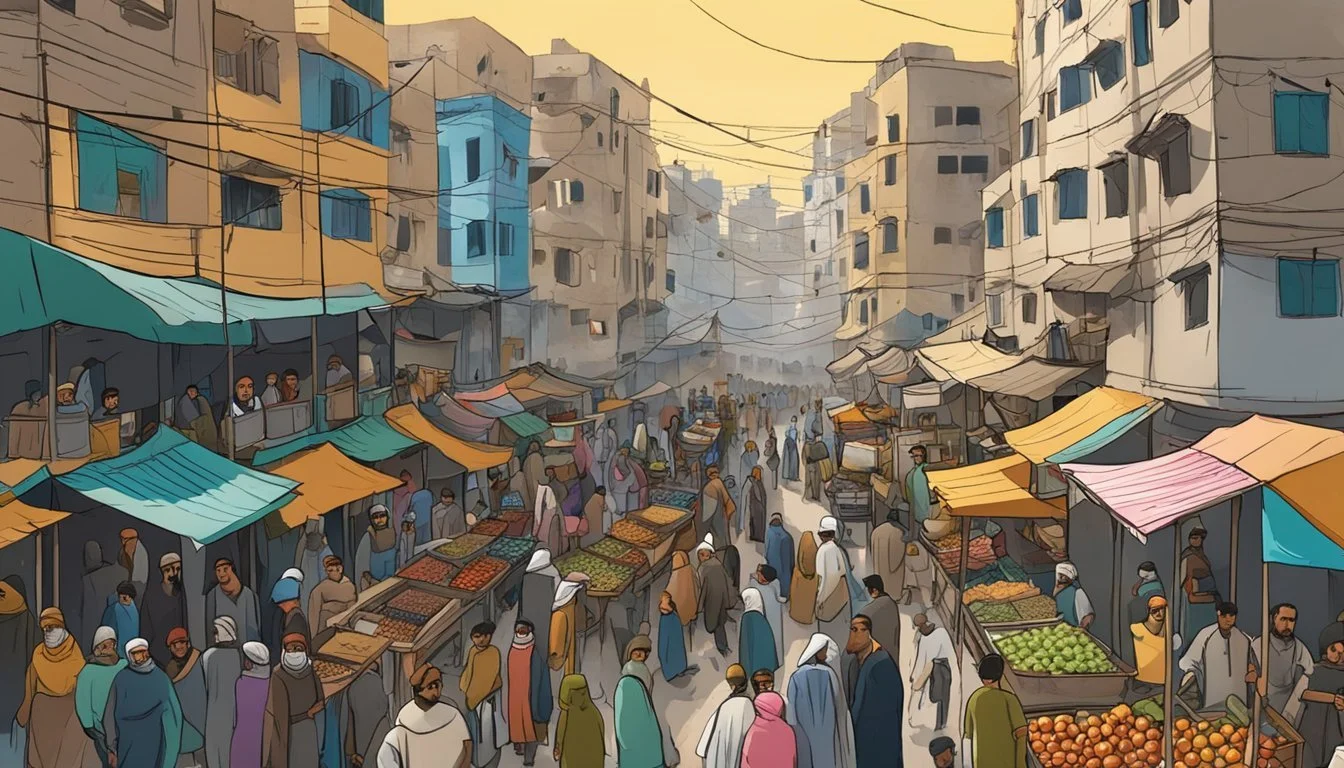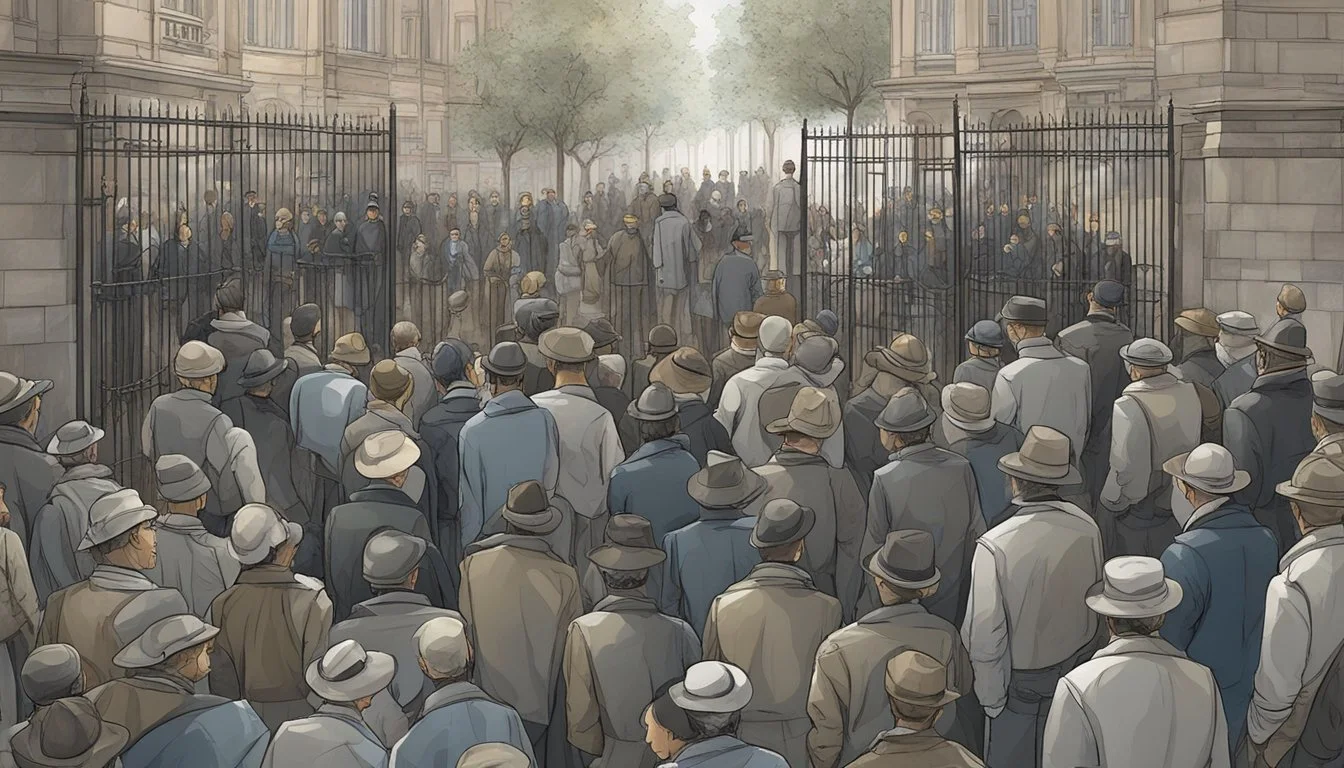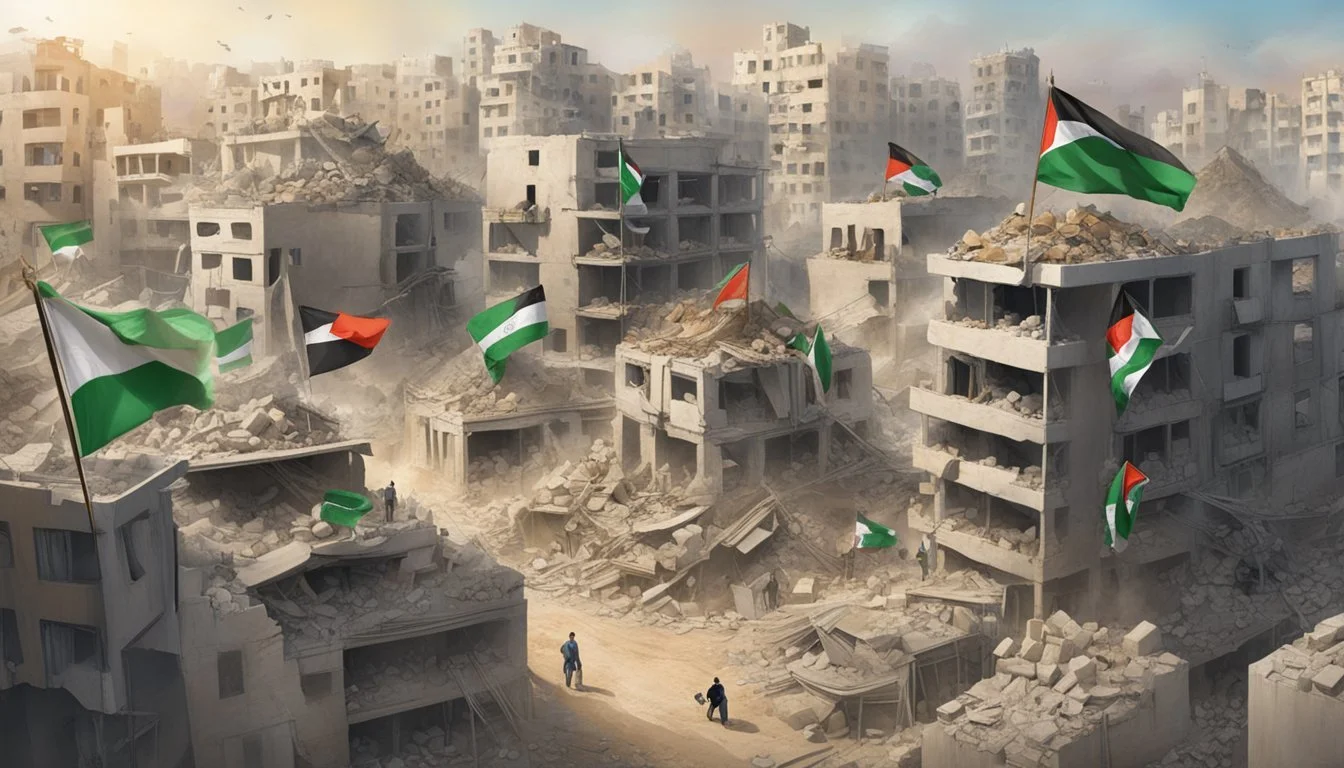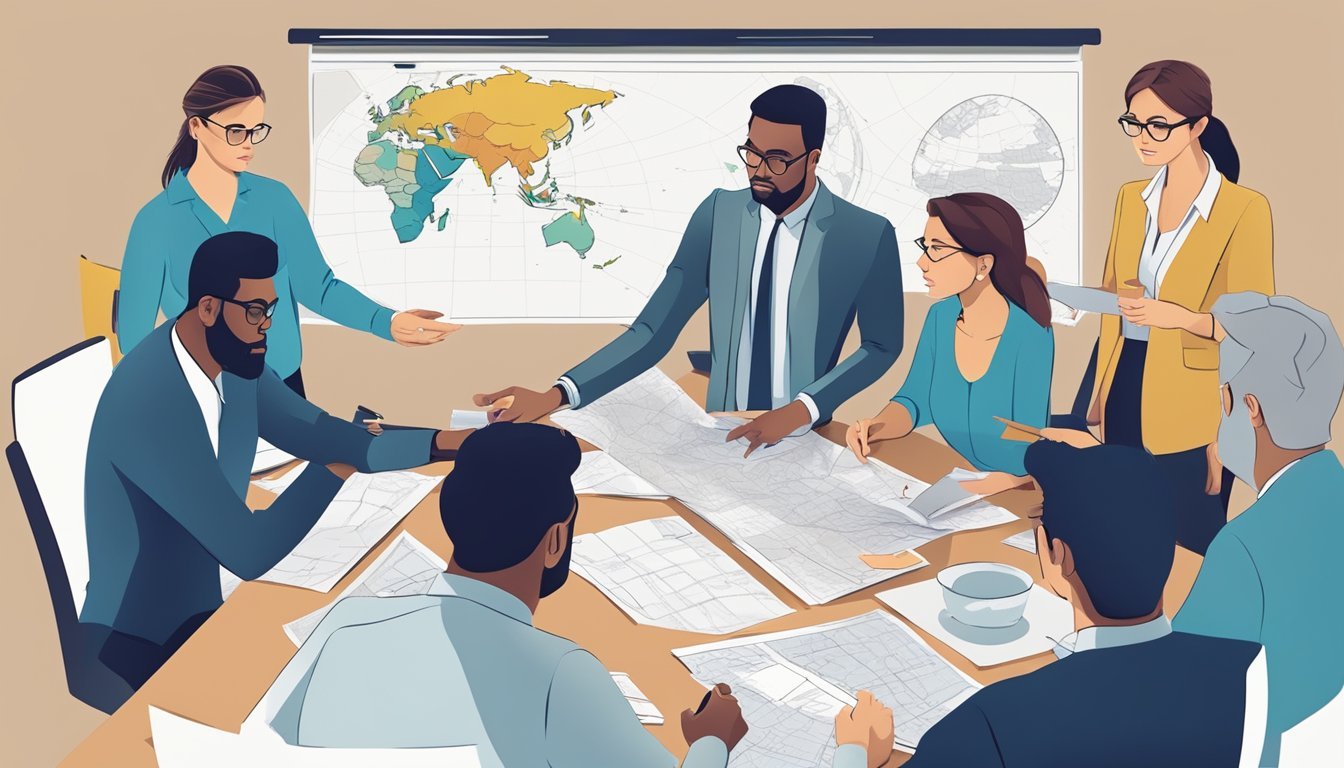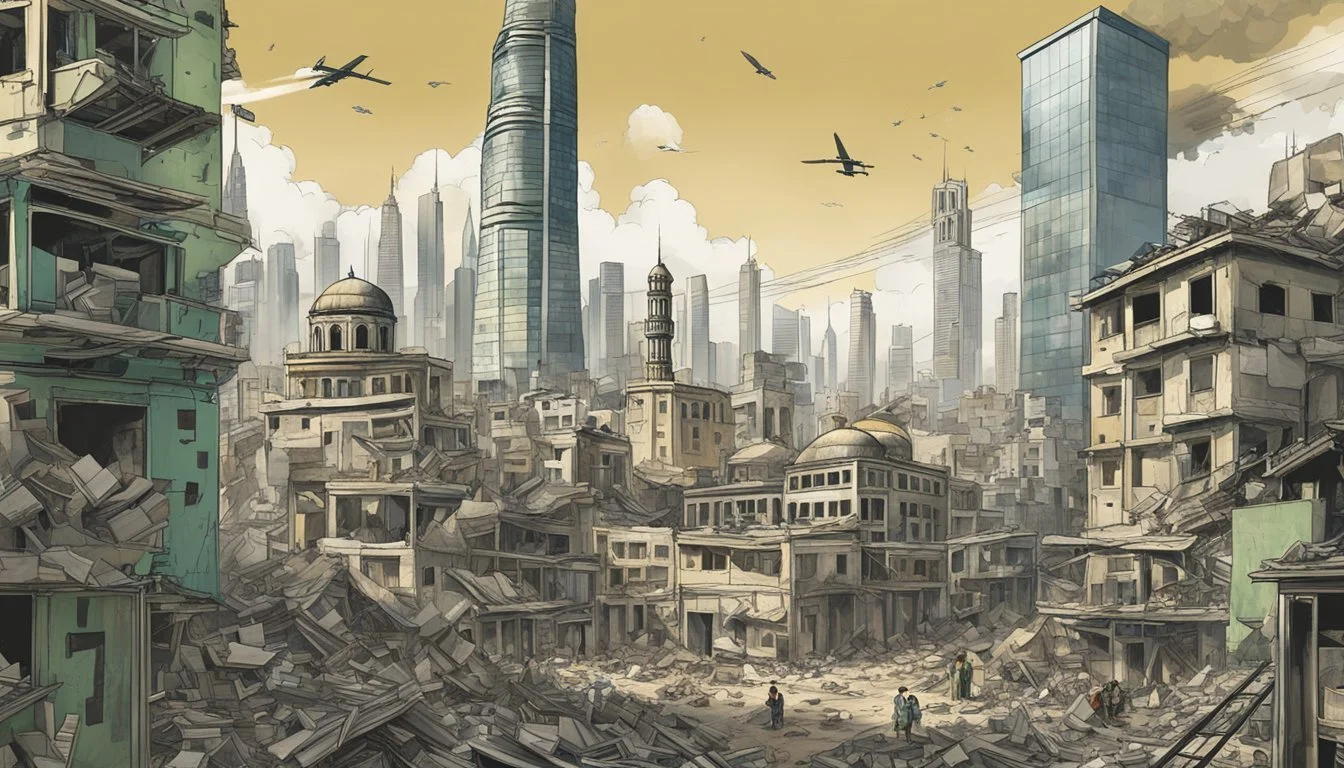9 Documentaries Examining the Complexities of Hamas and Its Influence
A Comprehensive Look at the Palestinian Organization
Documentaries offer a unique lens to explore complex geopolitical issues, and the topic of Hamas is no exception. These films delve into the history, motivations, and impact of the Palestinian militant group that has played a significant role in the Israeli-Palestinian conflict for decades.
By examining Hamas through multiple perspectives, these documentaries provide viewers with a more nuanced understanding of the organization and its influence on regional dynamics. From its origins to its current strategies, the films present a range of viewpoints and analyses that shed light on the multifaceted nature of Hamas and its place in the broader context of Middle Eastern politics.
1) "The Hamas Years" by Edward F. Mickolus
"The Hamas Years" offers a comprehensive look at the Palestinian militant group's history and operations. Edward F. Mickolus, a former CIA analyst, presents a detailed chronology of Hamas activities from 1987 to 2007.
The documentary explores Hamas's founding during the First Intifada and its evolution into a significant political force in Palestine. It examines the group's social welfare programs, which have garnered support among Palestinians.
Mickolus's work delves into Hamas's military actions, including suicide bombings and rocket attacks against Israeli targets. The film also covers the organization's rise to power in Gaza following the 2006 Palestinian legislative election.
Through interviews and archival footage, "The Hamas Years" provides insight into the group's leadership, ideology, and internal dynamics. The documentary aims to present a balanced view of Hamas's impact on Palestinian society and regional politics.
More information about the documentary
2) "To Die in Jerusalem" directed by Hilla Medalia
"To Die in Jerusalem" is a thought-provoking documentary released in 2007. It explores the aftermath of a suicide bombing in Jerusalem on March 29, 2002.
The film focuses on two teenage girls: Rachel Levy, a 17-year-old Israeli victim, and Ayat al-Akhras, the 18-year-old Palestinian suicide bomber. Both girls bore a striking physical resemblance to each other.
Director Hilla Medalia examines the impact of this tragic event on the families of both girls. The documentary delves into the complexities of the Israeli-Palestinian conflict through their personal stories.
The film portrays the mothers' grief and their attempts to understand the circumstances that led to this devastating incident. It offers a unique perspective on the ongoing tensions in the region.
"To Die in Jerusalem" provides viewers with a nuanced look at the human cost of conflict. It encourages reflection on the cycle of violence and its effects on individuals and communities.
https://en.wikipedia.org/wiki/To_Die_in_Jerusalem
3) "Gaza: Letters from Palestine" by Teresa Thornhill
"Gaza: Letters from Palestine" offers a poignant look at life in Gaza through personal stories. Director Teresa Thornhill crafts an intimate portrait of Palestinian experiences under occupation.
The documentary showcases interviews with Gaza residents, revealing their daily struggles and aspirations. Thornhill's approach humanizes the conflict by focusing on individual narratives.
The film explores themes of resilience, family, and identity in the face of ongoing hardship. It provides context on Gaza's history and current political situation without oversimplifying complex issues.
Thornhill's work stands out for its emphasis on Palestinian voices often underrepresented in mainstream media. The documentary aims to foster understanding of Gaza's realities beyond news headlines.
"Gaza: Letters from Palestine" received critical acclaim for its sensitive portrayal of a contentious topic. It serves as a valuable resource for those seeking nuanced perspectives on the Israeli-Palestinian conflict.
https://www.imdb.com/title/tt1785300/
4) "The Green Prince" directed by Nadav Schirman
"The Green Prince" is a 2014 documentary that explores the extraordinary story of Mosab Hassan Yousef. As the son of a prominent Hamas leader, Yousef became an informant for Israel's security service, Shin Bet.
The film is based on Yousef's autobiography "Son of Hamas" and provides a unique perspective on the Israeli-Palestinian conflict. Director Nadav Schirman crafts a narrative that delves into the complex world of espionage and divided loyalties.
Through interviews with Yousef and his Shin Bet handler, Gonen Ben Yitzhak, the documentary reveals the high-stakes nature of their collaboration. It offers insights into the inner workings of Hamas and the Israeli intelligence community.
"The Green Prince" received critical acclaim, winning several awards including the Best Documentary Award from the Israeli Film Academy in 2014. The film's intimate approach sheds light on the personal costs of choosing sides in a long-standing conflict.
https://en.wikipedia.org/wiki/The_Green_Prince_(film)
5) "Hamas: From Resistance to Government" by Paola Caridi
Paola Caridi's book "Hamas: From Resistance to Government" offers a comprehensive look at the Palestinian organization's evolution. The work traces Hamas's journey from its origins as a resistance movement to its role in governance following the 2006 elections.
Caridi, an Italian journalist and historian, provides a balanced account of Hamas's political trajectory. She examines key historical events that shaped the group's development and its impact on the Israeli-Palestinian conflict.
The book explores Hamas's transition from an opposition force to a governing entity. It delves into the challenges and complexities the organization faced as it adapted to its new political responsibilities.
Caridi's analysis covers Hamas's history from its early days to more recent events, including Operation Cast Lead. Her work aims to provide readers with a clear understanding of Hamas's role in Middle Eastern politics.
The author's background living in the Middle East since 2001 lends authenticity to her perspective. Her neutral tone allows readers to form their own opinions about this controversial organization.
https://www.goodreads.com/book/show/13239543-hamas
6) "The Gatekeepers" directed by Dror Moreh
"The Gatekeepers" is a 2012 documentary film that offers a rare glimpse into Israel's internal security service, Shin Bet. Director Dror Moreh interviews six former heads of the organization, providing insights into their decision-making processes and perspectives on Israeli-Palestinian relations.
The film combines in-depth interviews with archival footage and computer animation. It explores the complexities of Israel's security policies and their impact on both Israelis and Palestinians.
Interviewees share candid reflections on their roles in maintaining national security. They discuss operations, ethical dilemmas, and the long-term consequences of their actions.
"The Gatekeepers" received critical acclaim for its balanced approach to a sensitive subject. It was nominated for Best Documentary Feature at the 85th Academy Awards.
The documentary sparked discussions about Israel's security practices and the ongoing conflict with Palestinians. It challenged viewers to consider the human cost of maintaining national security.
https://en.wikipedia.org/wiki/The_Gatekeepers_(film)
7) "Born in Gaza" directed by Hernán Zin
"Born in Gaza" is a 2014 documentary that offers a poignant look at the lives of Palestinian children in the aftermath of the Gaza War. Director Hernán Zin focuses on ten young individuals, providing an intimate portrayal of their experiences.
The film captures the daily realities of these children as they navigate life in a war-torn environment. It showcases their struggles, hopes, and resilience in the face of ongoing conflict and its devastating impact on their community.
Zin's documentary eschews political debate, instead centering on the personal stories of its young subjects. Through their eyes, viewers gain insight into the human cost of the Israeli-Palestinian conflict and its effects on the most vulnerable members of society.
"Born in Gaza" presents a sensitive and nuanced exploration of childhood in a conflict zone. It highlights the transformative power of violence on young lives and gives voice to those often unheard in broader geopolitical discussions.
https://www.imdb.com/title/tt4274574/
8) "Gaza Surf Club" directed by Philip Gnadt and Mickey Yamine
"Gaza Surf Club" is a 2016 German documentary that explores the lives of young Palestinians who find solace in surfing along the Gaza Strip coast. The film follows a group of Gazans who use surfing as a means of escape from their challenging circumstances.
Directors Philip Gnadt and Mickey Yamine employ a "day in the life" approach to showcase the surfers' experiences. The documentary highlights how these individuals seek freedom and meaning through riding the waves of the Mediterranean Sea.
One of the main subjects is Ibrahim, a young surfer who travels to Hawaii in pursuit of opportunities to establish a surfing club in Gaza. The film portrays the contrast between the limited resources available to Gazan surfers and the thriving surf culture elsewhere.
"Gaza Surf Club" sheds light on the resourcefulness and resilience of Gaza's youth, who find joy and purpose in surfing despite living in what has been described as "the world's largest open-air prison." The documentary offers a unique perspective on life in Gaza, focusing on a small community's passion for surfing amidst political turmoil.
9) "5 Broken Cameras" directed by Emad Burnat and Guy Davidi
"5 Broken Cameras" is a documentary that provides a firsthand account of non-violent resistance in a West Bank village. Palestinian farmer Emad Burnat chronicles the protests against Israeli settlements and the construction of a separation barrier.
The film uniquely blends personal and political narratives. Burnat captures his family life, including the birth and early years of his youngest son, alongside the village's struggle against encroachment on their land.
The title refers to the five cameras destroyed during the filming process. Each camera represents a different period in the village's resistance efforts, providing a timeline for the events depicted.
Co-directed by Burnat and Israeli filmmaker Guy Davidi, the documentary offers perspectives from both sides of the conflict. It showcases the complexities of the Israeli-Palestinian situation through intimate, ground-level footage.
The film received critical acclaim and won several awards, including recognition at the Sundance Film Festival. It presents a raw, unfiltered look at the human impact of the ongoing conflict in the region.
https://www.imdb.com/title/tt2125423/
Historical Context of Hamas
Hamas emerged as a significant player in the Israeli-Palestinian conflict, shaping regional dynamics through its militant and political activities. The group's origins and development provide crucial context for understanding its current role.
Roots and Formation
Hamas traces its roots to the Muslim Brotherhood in Egypt. It was officially established in 1987 during the First Intifada against Israeli occupation. The group's founders, including Sheikh Ahmed Yassin, aimed to create an Islamic resistance movement in Gaza.
Initially, Hamas focused on social welfare programs and religious education. These activities helped build popular support among Palestinians. The organization's name is an acronym for Harakat al-Muqawamah al-Islamiya, meaning "Islamic Resistance Movement" in Arabic.
Evolution Over Time
Hamas gradually expanded its activities beyond social services. In the 1990s and 2000s, it carried out suicide bombings and rocket attacks against Israeli targets. This militant strategy contrasted with the more diplomatic approach of the Palestinian Authority.
In 2006, Hamas won a majority in the Palestinian legislative elections. This victory led to tensions with Fatah, resulting in Hamas taking control of Gaza in 2007. Since then, Hamas has governed the Gaza Strip, balancing governance responsibilities with its ongoing conflict with Israel.
The group's tactics and goals have evolved, adapting to changing political landscapes. Hamas has engaged in indirect negotiations with Israel while maintaining its armed resistance stance. Its relationship with regional powers, including Iran, has also fluctuated over time.
Hamas' Political Influence
Hamas wields significant political power within Palestinian territories and shapes relations with other nations. Its governance in Gaza and stance on Israel impact regional dynamics and international perceptions.
Role in Palestinian Governance
Hamas gained control of Gaza in 2007, establishing a separate governing entity from the Palestinian Authority in the West Bank. The group provides social services and maintains order through its security forces. Hamas implements strict Islamic policies in Gaza, influencing daily life and social norms.
The organization participates in Palestinian elections when held. Its political wing engages in negotiations with rival factions and external parties. Hamas faces challenges in governance due to economic blockades and recurring conflicts with Israel.
International Relations and Perception
Hamas is designated a terrorist organization by several countries, including the United States and European Union members. This label complicates its diplomatic efforts and access to international aid.
Some nations maintain unofficial contacts with Hamas for pragmatic reasons. The group's ties with Iran and other regional actors influence Middle East politics. Hamas seeks legitimacy on the global stage while maintaining its core ideological positions.
Its actions, including attacks on Israel, shape international perceptions of the Palestinian cause. The organization's political influence extends beyond Gaza, affecting broader Israeli-Palestinian peace efforts.
Socio-Economic Impact of Hamas
Hamas exerts significant influence over Gaza's socio-economic landscape through community programs and economic strategies. The organization maintains a complex relationship with the local population and faces ongoing challenges in managing Gaza's economy.
Community Support and Services
Hamas provides essential social services to many Gazans. The group operates schools, healthcare facilities, and welfare programs. These services fill gaps left by insufficient government infrastructure. Hamas-run mosques and charities distribute food and financial aid to families in need.
The organization's social initiatives have garnered support from some segments of the population. Critics argue these programs create dependency and strengthen Hamas's political control. International aid agencies sometimes struggle to operate independently in Gaza due to Hamas's pervasive influence.
Economic Strategies and Challenges
Gaza's economy faces severe constraints under Hamas rule. The group imposes taxes on businesses and goods entering through tunnels from Egypt. This revenue helps fund Hamas operations but also raises prices for consumers.
Hamas attempts to manage Gaza's limited resources through rationing and price controls. The organization faces difficulties in job creation and economic development due to the ongoing blockade. Unemployment remains high, especially among youth.
International sanctions and restrictions on trade significantly impact Gaza's economic potential. Hamas has sought alternative revenue streams, including alleged involvement in illicit activities. The group's economic policies and external pressures contribute to Gaza's economic isolation.



